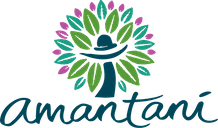What does it mean to be a woman in rural communities of Cusco?
Today, March 8th, we celebrate the International Women’s Day; a date that has become increasingly important in the last few years as it sheds light on the many gender-related issues that occur in most countries around the globe.
In 2020, Peru had a gender disparity gap of 71.4%, placing the country 66th on the Global Gender Gap Report published by the World Economic Forum. These gaps are more evident in rural areas where a lack of economic development, a deficient sexual education and limited access to education are combine and are part of a longer list of issues that need to be addressed urgently.
To know more about what it means to be a woman in rural areas in Cusco, we met with Ruth Karina, Nely, Marleni, Yaneth, Aydee and Lidia Martha, current participants of our Scholarships Programme.
We started the conversation by sharing some of the perceived differences on how men and women were treated at home: “In my family, there has always been a difference between how men and women were treated,” said Ruth Karina. “For example, boys usually got more attention and coddling. Your mother could ask you to help at home but the boys would remain on the sofa, unaffected.”
This differentiated treatment isn’t limited to rural areas and is not only seen in people’s homes. Instead, it has become engrained in the way certain activities occur in society and it affects the roles assigned to each gender. Not long ago, community meetings in Ccorca used to be held by men and for men only. “During the pandemic, I went to a meeting and they told me to leave,” commented Lidia Martha. “And I told them: ‘How could you not want women here? I’m currently studying and I understand things much better than all of you.’ But they told me my father should be there instead. I told them he was working and that I was his daughter. In the end, they let me in and all the women who had been left out of the meeting came with me.’ When asking her what the men’s reaction to her comments were, she replied, “They listened to me. I know how to speak Spanish, but I originally spoke Quechua so I kept translating everything I said to those who were closer to me.”
Lidia Martha is a clear example of how anybody can become an agent of change when combining education and personal empowerment. Lidia Martha isn’t the only one who has been through these types of situations. “When I finished secondary school, I knew my uncles thought I was going to get pregnant and wasn’t going to continue studying,” said Ruth Karina, “But now I’m studying, they motivate me and show interest in what I do. They respect me more.”
Being part of a generation that is actively working on reducing gender gaps also comes with its own set of challenges. “If your mum sees you don’t know how to cook, she will get angry and probably say: ‘How are you going to cook for your husband, then?’” said Nely. “And we (she and her sister) will explain that relationships have to be 50-50. Your partner is supposed to support you. Both should share the responsibility of taking care of the kids and taking care of the house. My parents have changed the way they think but we still sometimes talk about these types of comments.”
But using dialogue as a tool to motivate reflection is not always welcome. In many cases, simply being a woman in a patriarchal society puts their physical and emotional safety at risk, eliminating conversation as a way to reach a common ground. The Portal Estadístico Aurora published that from January to July 2021, there was an 83.9% increase in cases of violence against women, family members and sexual violence registered by the Emergency Centres for Women in Peru, compared to the year before. This, without taking into account all the cases that aren´t registered. “I think there are many times in which we don’t speak up. We sometimes think the abusive man is going to change. And in the meantime, we hide it. We also tend to worry a lot about what others may think or say about us.” Nonetheless, in most cases, the majority of the participants of the Scholarships Programme know that change comes from within and are willing to go through uncomfortable moments in order to protect themselves both physically and psychologically. “Recently, I was walking down the street and there was a taxi driver who wouldn’t stop following me and offering me a ride. I told him I didn’t want one, but he insisted,” continued Marleni. “In the end, I told him I had taken a photo of both him and his license plate and that I was going to sue him. He got scared, apologized and left. That same day I shared what had happened with my partner and my brother, who is a policeman.”
Towards the end of the conversation, we asked them if they would like to have this same conversation with their male peers of the Scholarships Programme and they seemed very interested in learning about their opinions on these issues and sharing their ideas with them.
We are confident we are witnessing important changes in this generation. Let’s continue working each year so that we can keep celebrating the 8th of March striving towards greater equality, more respect and uplifting humanity.
From left to right: Marleni, Yaneth, Nely, Aydee, Ruth Karina and Lidia Martha.

